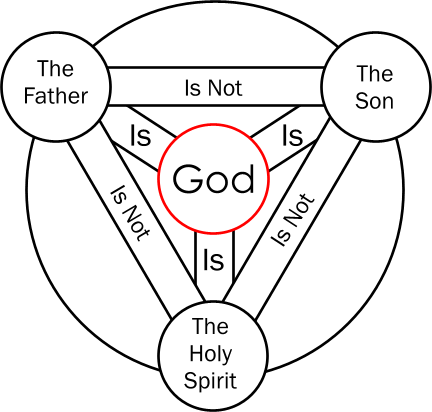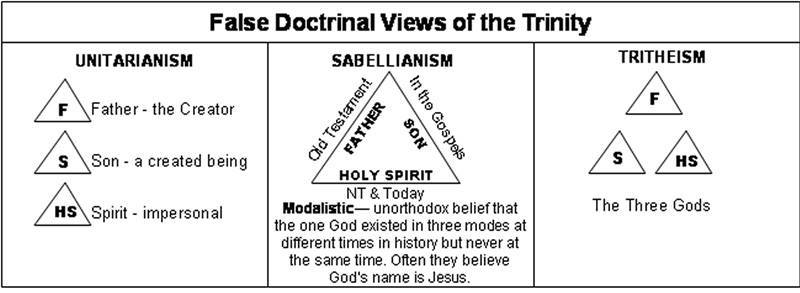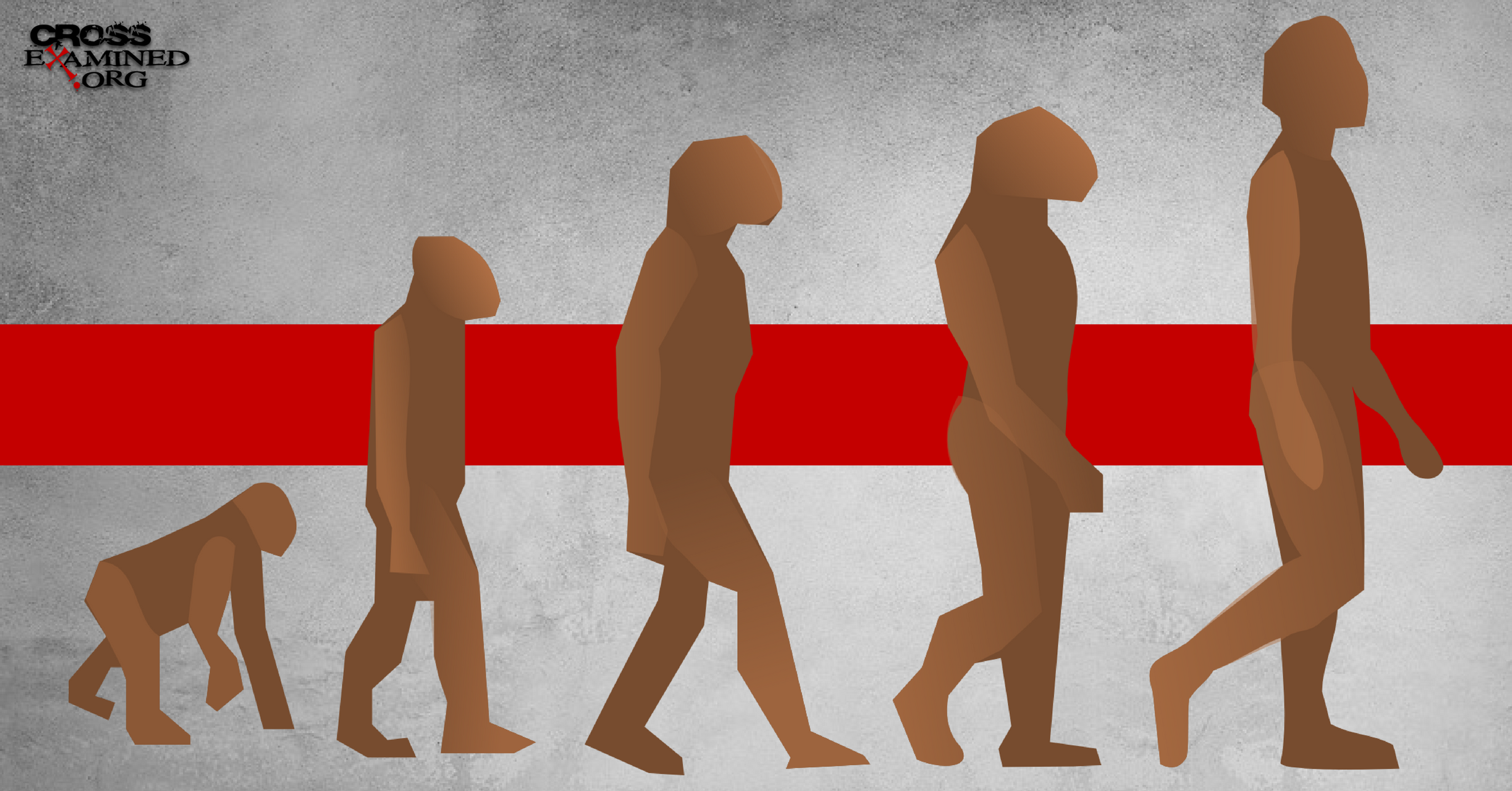By Ken Mann
The following is was delivered as a plenary session at a Biola on the Road conference in April 2017 at Faith Bible Church in Houston Texas.
Introduction
Charles Darwin. Evolution. Perhaps no other man and no other idea have had a wider influence on western culture. Since On the Origin of Species by Means of Natural Selection was first published in 1859, how we perceive our world and ourselves has been transformed. For those who have embraced Darwinism, humanity and every other living thing are the end products of a natural process. There is no Creator. There is no purpose. There is just survival. Humanity is a cosmic accident.
Since as early as 1888, scientists and academics have asserted that Darwinian evolution is a fact as certain as gravity. The momentum behind Darwin’s theory strengthened in the 20th century to the point that nearly every aspect of human behavior and culture has been subjected to an evolutionary explanation. Today, scientists who are merely skeptical about evolution risk losing their jobs if their views become known.
In the face of such an onslaught, what should a Christian think? In my own experience, I was always convinced that evolution was false. Not because I knew anything about it. Rather, I was certain of the existence of God and the reliability of the New Testament. I believed I had adequate justification to believe in a literal Adam and Eve, in the Fall, and in the person and work of Jesus Christ.
But for many years I was plagued by an internal conflict. Setting aside evolution, I have always loved science. Since studying physics in college, I have adhered to the adage that science is “thinking God’s thoughts after Him.” Despite the myriad of apparent conflicts between science and religion, I suspected that Psalm 19:1, the heavens declare the glory of God, meant that the study of creation was compatible with the Christian worldview.
Then in 2010, I enrolled in the Science and Religion program at Biola. During my first year, I took a class that focused on Darwin. At the time, Darwin seemed like the Mt. Everest of a “Science and Religion” program. Looking back on it now, this subject embodied everything that made the program so valuable. The tools I learned and the confidence I gained have transformed my Faith.
I always rejected evolution not because I understood the science, philosophy or history that surrounds it, but because I trusted God more. Today, I know the reasons why Darwinian evolution is not fact, and I should emphasize, none of them are based on Christian doctrine.
That might alarm some of you so let me explain. There are many myths and distortions about the relationship between science and Christianity. Perhaps the worst is that science and Christianity are in hopeless conflict, that the Christian church has been an impediment to science since Galileo. In reality, the foundations of modern science, the assumptions that made science possible, come from the Christian worldview. The pioneers of modern science were all committed Christians, most of whom saw science, in the words of Kepler as “thinking God’s thoughts after Him.”
In other words, science and Scripture are merely two sources of revelation. There is the “book of nature” and the “book of Scripture.” These two “books” cannot contradict each other because they have the same author, God. When they seem to contradict, something has gone wrong with our understanding of Scripture, nature or both.
Since Galileo’s confrontation with the Catholic Church in the 17th century, there have been conflicts between doctrines promoted by the Church and the conclusions of science. In Galileo’s time, almost everyone accepted an earth-centered view of the cosmos that originated with the Greeks and had later become sanctified using certain passages from the Old Testament. Galileo questioned the conventional wisdom of his time and advocated an idea that would not be widely accepted for another century.
In the 19th century, Charles Darwin also challenged widely accepted ideas about God’s role in creating the world. Since then Christianity has been challenged by variety conclusions based on his writings.
How should we deal with these challenges? The first and more important step is to understand them. We shouldn’t run away from something that attacks our Christian worldview. We should run toward it. Engage, learn, and trust that God is sovereign.
As we engage with Evolution today, I want to reassure you that we are not going to wander off into the tall grass of the biological sciences. We are not going to talk about the Prevalence of Functionally Significant Glutathione S-Transferase Genetic Polymorphisms in Dogs. (That is the subject of a research project my daughter, a biochemistry, cell, and molecular biology major, has been working on since last summer.) Not because the science isn’t important, but because it takes a lot more time than we have available today. Further, there are far more obvious problems with Darwinian evolution.
It is assumed that Darwin’s theory was the triumph of science over the myths of religion. It is claimed Darwin was not influenced by religion; he studied nature and “discovered” how it really worked. Based on his empirical observations he proposed an idea that explained how life developed via natural processes without the direct intervention of a creator. In reality, Darwin had certain assumptions about God and how He would create that was inconsistent with what he found in the natural world. In short, Darwin was convinced his theory was true because his God would not have created the world as we find it.
My highest priority this morning is to be understood; therefore I want to be clear what I am talking about. I also want to inform, which means some of what I share might be challenging and new to some of you. I would ask for your patience as we go along. I will be around to answer questions and the substance of this talk, along with a list of some relevant books, can be found on my website under “resources.”
I am going to cover two things this morning. First, I am going to discuss some terminology that is foundational to this subject. Next, we will consider the theological ideas that were at work in the 19th century and still influence public perception of the relationship between science and Christianity.
Terminology
Whether you are engaging with someone with a different worldview or simply trying to learn more about a subject, navigating terminology is a crucial task. You have to be aware of words you haven’t heard or seen before. Whether I am reading or in conversation, I am always alert to such words. If I am reading, I will stop and look up the word. In conversation, it is difficult but still just as important to interrupt and ask the other person what a word means. If they can define the term for you, your conversation has been enhanced. If they can’t, you may or may not be able to continue. Regardless, it is important to prevent either side of a conversation from assuming what certain words mean.
Evolution
So what does the word evolution mean? That depends on the context and the intention of the author. Just on this subject, there are actually six different definitions that are routinely used. Only one definition is in view this morning, but if you read articles or blogs on evolution, you may encounter one or more of these definitions. You may even find authors who use the word in one sense, then later switch to a different meaning later in the same article.
- Change over time. To quote the Screwtape letters, “…to be in time means to change.” The study of nature frequently entails discerning what has happened in the past from the evidence we can examine today. Clearly, no one is going to disagree with this definition.
- Change in the distribution of different physical traits within a population. This refers to a field within biology known as population genetics. It studies the genetic composition of biological populations, and the changes in genetic composition that result from the operation of various factors, including natural selection.
- Limited Common Descent. “The idea that particular groups of organisms have descended from a common ancestor.” The best-known example of this is the finches encountered on the Galapagos Islands. Today there are many examples of different species that probably have a common ancestor.
- The mechanism of limited common descent, natural selection acting on genetic mutations. Darwin’s theory had three premises: organisms varied, variations could be inherited, and all organisms were under pressure to survive. Those variations that enhanced survival were passed on to other generations. Again, in a limited sense, such variation is observed, and it is plausible that survival could select certain traits over others.
None of the definitions so far are controversial. However, the next two are where most of the disagreements occur.
- Universal Common Descent. This definition of evolution asserts that every organism is descended from a single original organism. As controversial as this may sound, it is not the final word on what most scientists believe is meant by evolution.
- “Blind Watchmaker” thesis.
The term “blind watchmaker” was coined by Richard Dawkins in the title of his 1986 book, The Blind Watchmaker: Why the Evidence for Evolution Reveals a Universe Without Design. Dawkins was ridiculing an argument made by William Paley published in 1802. Paley argued that the existence of a watch implies the existence of a watchmaker. Whereas a rock merely implies the processes of geology over time.
This definition of evolution is that all organisms have descended from common ancestors solely through an unguided, unintelligent, purposeless, material process. This process is completely sufficient to account for the appearance of design in living organisms.
Or more succinctly, “Molecules to men by way of chemistry and physics.”
This final definition is what really drives the conflict of worldviews between materialism and Christianity. It goes by a couple of other names: “Darwinism” or “neo-Darwinism.” (The later term is a more technical and specific in that it refers to the integration of Darwinism and the science of population genetics in the middle of the 20th century.)
While you should always press for definitions, when you hear Darwin’s name or evolution invoked in a discussion about human origins or the development of life, you can be confident that the “molecules to men” idea is usually what is meant.
Science
The term science needs not so much a definition as a lot of warning labels. Being that it is in the title of my major, it will come as no surprise that I have developed some opinions on the subject. I am going to limit myself to two ideas.
First, science cannot be constrained by a specific detailed definition. There is no definitive list of criteria that says, “that is science, but this other field is not!” In other words, specific examples of science (e.g., physics, biology, and paleoanthropology) seem obvious, however, coming up with a list of criteria that separates astrology from astronomy, for example, is harder to do. Most everyone is going to agree that simply studying the movement of the stars and planets does not make astrology a science.
Second, beware of an inflated view of science as a source of knowledge. The view known as “scientism” asserts that the only things that can be known are from the natural sciences. It is a tactic designed to give the guy in a lab coat, as opposed to a theologian or a philosopher, a privileged status that ends the discussion. It is also a self-refuting concept because there is nothing we can learn from science. However you define science, that demonstrates scientism.
Theology
Theology is the study of the nature of God. I believe that the Bible is the best source for theology. But we can also learn something about the nature of God from other disciplines, such as science and philosophy.
Human Nature
Now that I’ve defined Darwinism, I should also touch on the term human nature. Obviously, this is a subject as vast human experience. An entire conference could be devoted to addressing this subject. How you define, human nature is determined by your worldview. One may approach this question from a scientific, philosophical, or theological perspective. For my purposes this morning I simply want to address the crucial differences between human nature according to Darwinism and human nature according to Christian theism.
From the perspective of Darwinism, human beings and every living thing is simply the end result of a blind, unguided physical process. In other words, we are merely animals. The process of natural selection has been invoked to explain nearly every aspect of human culture and behavior. Many of these explanations are simply unsubstantiated stories, but they have captured the imagination of many. From religion to sexual infidelity, to altruism there is an evolutionary story for everything about human nature.
Darwinism denies the possibility of the soul; it makes no room for the existence of the immaterial. As a consequence, one must come to grips with the idea that everything we do, everything we think, everything we feel is not evidence of our soul, but is merely the output of a physical process.
According to Darwinism, the difference between human beings and every other animal is a matter of degree, not kind. Let me illustrate what I mean by these two words with an example.
Steph Curry and Russell Westbrook are reputed to be among the best point guards playing in the NBA right now. The difference between them is a matter of degree. However, if we were to compare Curry or Westbrook to a basketball, we would have to say the basketball is a different kind of thing.
Since we are just animals, it shouldn’t surprise you that ethical decisions about humans and animals are a bit different for the Darwinist. Peter Singer, a professor of bioethics at Princeton University, popularized the term speciesism, which refers to privileging members of a particular species over others. In other words, it is not always wrong to kill human beings under circumstances such as severe mental or physical handicaps. Some environmentalists have seized upon this idea to argue that the death of a logger or the economic destruction of a community are acceptable when weighed against the safety of a type of animal.
The Christian view of human nature is radically different. In addition to being grounded in Scripture, it is also consistent with our experience and deepest intuitions.
According to Christianity, human beings are unique in creation, a completely different kind of creature from every other animal. We are physical creatures. We are similar to other animals in many ways. Yet we also have an immaterial nature, a soul if you will. I have always been fond of this passage from the Screwtape Letters:
Humans are amphibians— half spirit and half animal… As spirits, they belong to the eternal world, but as animals they inhabit time. This means that while their spirit can be directed to an eternal object, their bodies, passions, and imaginations are in continual change, for to be in time means to change. (p. 37).
I would quibble with Screwtape to the extent that we are not “half spirit and half animal” rather we are embodied souls. Our soul completely occupies and animates our bodies. Our soul can also exist apart from our bodies, but a human body cannot continue without a soul.
The most essential aspect of human nature, what makes us unique, is found in the phrase the “image of God” first mentioned in Genesis 1:26-27.
Then God said, “Let Us make man in Our image, according to Our likeness; and let them rule over the fish of the sea and over the birds of the sky and over the cattle and over all the earth, and over every creeping thing that creeps on the earth.” God created man in His own image, in the image of God He created him; male and female He created them.
To briefly unpack this phrase, if we consider the Hebrew words used here for “image” and “likeness” and Greek word (eikōn), it would seem that God created us to be similar but not identical to Himself.
Consider just three ways we are similar to God.
- We are spiritual. Part of our nature is an immaterial soul or spirit united with a physical body.
- We are personal, that is to say, we are self-conscious and rational beings. We have a mind, will, and emotions.
- We have the power to choose. Sometimes referred to as free agency, we have the capacity to deliberate and make choices.
Finally, no discussion of the Christian view of human nature would be complete without considering the Fall. As unique as we are, as much as we were created to be in fellowship with God and with each other, the most certain and painful fact is that something is horribly wrong.
Darwinism and the materialist worldview it supports must deny our daily awareness of evil. In ourselves, in our culture, even to some extent in creation itself, we are constantly confronted with the results of human rebellion.
Christianity explains the existence of evil, our embrace of and revulsion from it; and it offers a solution in the person and work Jesus Christ.
Theological Foundations of Darwinism
In Matthew 16, Jesus asked His disciples, “Who do you say that I am?” This is the most important question anyone will ever answer. Understanding who Jesus is and what He did is an essential step to trusting Him as your personal savior.
That question is just as relevant if God the Father asked it. What you believe about God has a profound effect on every aspect of your life. Our perception of reality, how we choose to live, how we choose to solve our problems, everything about us is ultimately effected by our view of God.
This is no less true in science. For as long as people have tried to understand nature, their beliefs about what or who created the world has impacted how they comprehend nature.
In the 19th century, there were several trends in theology that set the stage for Darwinism. Consider one example. It was argued that it would demean God to believe every animal species was a unique act of creation. Rather, God would be a wiser and more capable creator if the capacity to create species by some natural process was built into creation. This view also downplayed or dismissed other things God did like miracles in the New Testament. This was sometimes referred to as “Greater God Theology.” Ideas like this and others we will now consider motivated Darwin to reconcile what was observed in nature with the theology of his day.
Natural theology and the ‘theory of creation’
The idea that God created is not really controversial in Christianity. It’s right there in the first verse, “In the beginning, God created the heavens and the earth.” Now a tremendous amount of words have been written about this verse and all that it means, however, no one doubts that central phrase, “God created.”
In the 18th and 19th century the perspective of creation was that from the motion of the heavens down to the myriad of animals and plants that occupy the earth, all of creation was a perfect, harmonious system that reflected God’s wisdom and benevolence. Starting in the 17th century a variety of theologians and scientists advanced the idea that evidence for God could be found in the study of nature. Known as “Natural Theology,” this field reached its peak in the works of William Paley at the beginning of 19th century. Natural theology argued, some would say brilliantly, that evidence for design could be found in nature.
However, there was a significant flaw in Paley’s perspective. Paley believed that God’s purpose in creation was the happiness of His creatures. Creation was idealized in such a way that God’s benevolence, wisdom were seen everywhere. Allow me to read a quote from Paley’s book Natural Theology:
It is a happy world after all. The air, the earth, the water, teem with delighted existence. In a Spring noon or a summer evening, on whichever side I turn my eyes, myriads of happy beings crowd upon my view. The insect youth are on the wing. Swarms of new-born flies are trying their pinions in the air. Their sportive motions, their wanton mazes, their gratuitous activity, their continual change of place without use or purpose, testify their joy, and the exultation which they feel in their lately discovered faculties. A bee amongst the flowers in spring is one of the most cheerful objects that can be looked upon. lts life appears to be all enjoyment, so busy, and so pleased: yet it is only a specimen of insect life.
In short, the Natural theologians claimed nature demonstrated God’s wisdom and goodness but they ignored His providence, judgment or use of evil.
The problem of Natural Evil
The problem of evil is something that has harassed Christian belief for a long time. If you haven’t heard that phrase before, it refers to the tension that exists between the obvious instances of evil we find in the world and the characteristics typically attributed to God. It is sometimes put as a question: “How can God be benevolent and omnipotent and yet allow the evil we experience in the world?”
Most discussions of this topic make a distinction between moral evil and natural evil. Moral evil is simply what people have been doing since Adam and Eve rebelled in the Garden. Natural evil, broadly speaking, is anything in nature that causes death or suffering. This could include everything from earthquakes, to disease, to all the horrible things animals do to each other.
Darwin, like other naturalists, did not see happiness and joy in creation. He saw death, suffering, and waste that he could not reconcile with Paley’s “happy” creation. He was particularly bothered by the suffering and death found in the animal kingdom. One particular example was a type of wasp that lays its eggs into the body of a caterpillar. After hatching, the larva starts consuming the host while it is still alive.
Darwin’s solution, consistent with greater God theology, was that God did not create the parasitic wasp or any of the other natural evil in the world. Rather, God created a system of natural laws which resulted in the world he studied. In a letter to Asa Gray (an American botanist) Darwin summarized his view this way. “I am inclined to look at everything as resulting from designed laws, with the details, whether good or bad, left to the working out of what we may call chance.”
To put it another way, God directly acting in creation was rejected in order to make the existence of natural evil comprehensible to human beings. If God did not directly create each individual species but merely created the natural system that resulted in the species we have today, then God is not directly responsible for natural evil.
“Nature is not perfect.”
A second aspect of natural theology to which Darwin objected is that all of the creation reflected God’s perfection. Of course, what is meant by perfection was apparently open to a wide variety of interpretations. For Darwin and many others since it has been the claim that many things found in nature are poorly designed.
Perhaps the most popular example of bad design in nature is the vestigial organ. When an organ or structures are no longer needed, it is “vestige” of the evolutionary process. It was needed in an ancestor species, but evolution has yet to remove it. In 1895 a German anatomist published a list of 86 vestigial organs in the human body. I am not aware of a single credible example today. Vestigial organs are not evidence of evolution. They are a combination of assuming evolution is true and ignorance of a particular organ’s function.
A more modern example of a claim of bad design is known as “Junk DNA.” This term was originally coined in 1972. When research first began into how DNA worked, the first thing discovered was the correlation between certain sequences of DNA bases (“rungs” on the DNA ladder) and the production of certain amino acids (20 different organic molecules that makeup proteins). The function of vast regions of DNA outside of these “protein coding,” upwards of 98% of the human genome was dismissed as “junk” until about five years ago. The Encyclopedia of DNA Elements (ENCODE) project began publishing results demonstrating that vast regions of the “junk DNA” in the human genome are being used.
Similar to vestigial organs, ignorance combined with an acceptance of evolution, resulted in the conclusion that subsequent research has proven wrong. In short, the existence of “Junk DNA” something that was once dogma is now becoming another failed prediction of Darwinism.
Theological Naturalism
A third theological idea that motivated Darwin and many others in the 19th century has to do with how God acts in creation. In order to make this clear I have to make a distinction between primary causes and secondary causes. An event which is caused by God and impossible by any other means, a miracle, is an example of primary causation. Something that occurs in accordance with natural law is an example of secondary causation. For example, the parting of the Red Sea as the Jews fled from Egypt was primary causation, the deaths of the Egyptian army caught when the water was released was secondary causation.
For many theologians and scientists since before Darwin down to the present day, science is not possible if God acts in the world. If primary causation is possible, then it is impossible to know the difference between an event caused by natural law and an event caused by God. In order to study nature, to understand the structure of “laws” that govern it, we must assume that God never acts in creation.
The net effect of this view does not deny that God was the creator of the universe, it simply means there is no evidence that He did. Of course, that is not the worst of it. If God has not done anything since the moment of creation, the incarnation and the resurrection of Jesus could not have happened.
Perhaps the simplest way to sum up this view is that God cannot be trusted. If He is capable of acting in creation, He is capable of tricking us. Science would become the “study” of the whims and unpredictable behavior of an omnipotent being.
Naturalism asserts that everything arises from natural properties and causes; supernatural or spiritual explanations are excluded or discounted. For theologians in the 19th century, this meant that God acted in creation through the laws he created. They argued God was greater, glorified more if He did not intervene in creation. Dr. Cornelius Hunter refers to this as theological naturalism because theological reasoning motivated it.
Today the default position of science is a view known as methodological naturalism. This is the idea that when you are doing science, you can only consider natural causes. The actions of an intelligent agent cannot be considered. God does not act in creation. From there, it is a short trip to atheism, where God does not exist.
But let me emphasize this point–the origins of naturalism that motivated Darwin and have become dogma within science today were philosophical. Naturalism was not a conclusion of science; it was a starting point.
Conclusion
Human nature according to Darwin, how should the Christian respond? First and foremost, when confronting an opposing worldview, you must understand what it believes and why. By exploring some terminology and its theological foundations, I’ve given you an introduction into the worldview of Darwinism.
I provided a summary of some of the ideas about God and his role in creation that motivated Darwin. Since On the Origin of Species was published down to the present day, Darwinism has relied on a perception of God that cannot be found in Scripture. Either God is absent from creation and cannot intervene, or He is incompetent because nature is full of “bad design.” Evolution is accepted as true because a distorted view of God and creation seems to be false.
This is not merely about science. It is not merely about religion. It is an example of how assumptions about God, religion if you will drive the process of science. Darwinism is not fact. Darwinism is less of a science than it is a theological viewpoint that claims empirical support from science.
Human nature according to Darwinism, including its denial of the soul and denial of human uniqueness, is not learned from various scientific disciplines. It is implied by the science and therefore it is accepted because Darwinism is accepted. However, if Darwinism is false, then whatever it claims about human nature is also false.
Time did not permit addressing the evidence used to support and critique Darwinism. What I can say in terms of a summary is that the evidence for Darwinism is only compelling if you are already convinced it is true. On the resources page on my website, today’s talk is available along with a list several books that cover today’s material in more depth. I would also encourage you to check out the books that focus on the scientific critiques of Darwinism.
I would like to leave you with some questions to ask someone who believes “molecules to men by way of physics and chemistry” is the best explanation for the vast diversity of life we find.
- What is the evidence for evolution?
- What is the Christian view of creation?
- How did life originate?
Each of these questions, depending on the responses you get, could be followed up with two questions. (1) What do you mean by that? (2) How did you come to that conclusion? These two questions from Greg Koukl’s Columbo technique seek clarification and evidence that will help you understand the other person’s perspective better.
It has been my prayer preparing for today that the summary I would offer here would encourage believers. It is also my prayer that you would leave today motivated to learn more about this subject and others that will be discussed today. As Christians, we are heirs to a tremendous heritage of thought that I fear has been abandoned. We worship a Being that created all things, sustains all things, and knows all things. Our trust in God should not be limited to our salvation. God is sovereign over everything. He is sovereign over every domain of human knowledge. He is sovereign over every lie that could deceive.
Don’t run away from a challenge. Engage, learn, and trust that God is sovereign.












